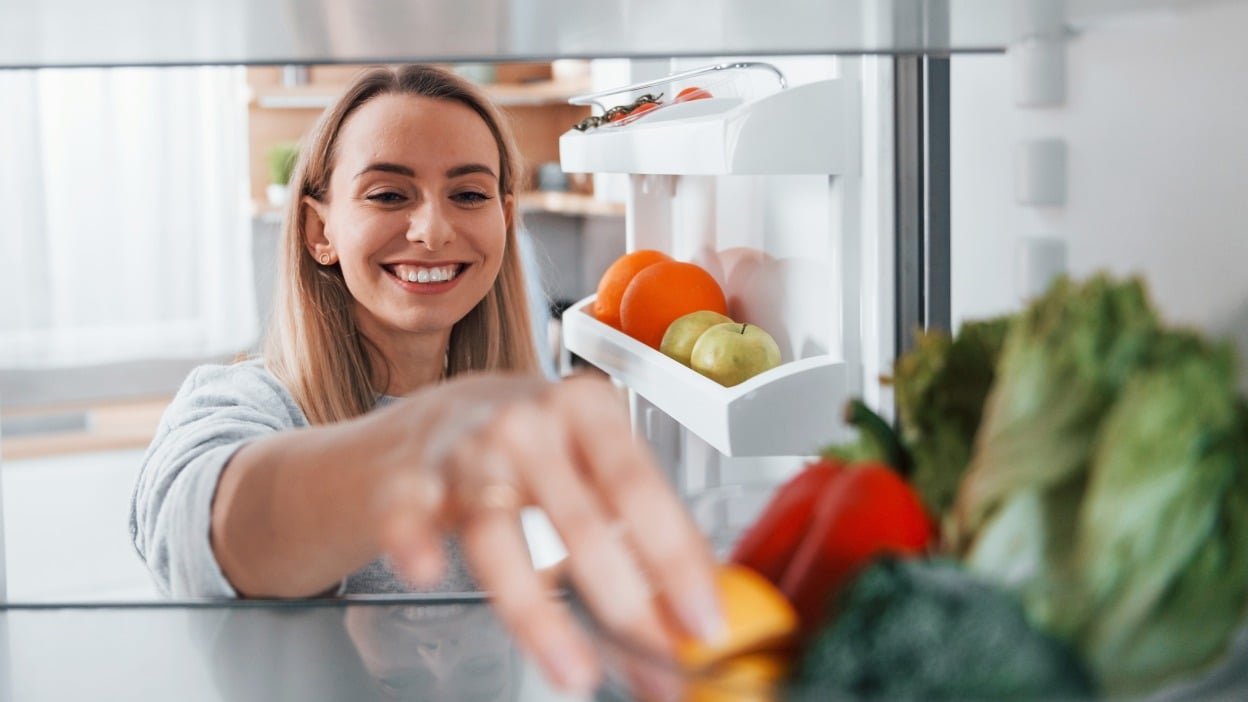I don’t like to start off my Fridays with a closed-mouth scream, but today that’s exactly what I did. One of TikTok’s latest transgressions (they’re starting to feel like personal affronts) is "fridgescaping." After making a quick journey through the five stages of grief I can say, with my heart at peace, fridgescaping is dumb—and potentially wasteful—but there are good things happening here that can help us store food smarter.
What is fridgescaping?
Fridgescaping is a portmanteau of “fridge” and “landscaping.” It reminds me of “tablescape,” a term Sandra Lee popularized (at least for me) during her Semi-Homemade days. This Hobbit fridgescape is one of my favorites to shake my head at. (Mostly because I’m a LOTR fan, and, duh, Hobbits don’t have fridges, they have larders.) Here is another with the text, "Where's my food?" Which at first I thought was a person seeking help after losing food behind the collection of objects.
Similar to all “scapes,” fridgescaping is changing the appearance of your fridge by manipulating the things that are already there—let’s call them "food and storage containers"—and adding non-native items—let’s call them "dumb stuff." Dumb stuff seems to include, but is not limited to: candles, tree stumps, mirrors, a handwritten note, decanted candy (decanted everything actually), glass or ceramic cat figurines, battery-powered fairy lights, and flowers in open glass vases.
Fridgescaping is mostly not helping your food
Apparently fridgescaping is done to make your fridge look more appealing when you open it. Beyond that, I’m not sure why folks are doing it. Maybe to impress your…self? Have your guests question whether or not you actually know what a fridge is?
Decanting some items, like milks (cow or otherwise), can actually expose them to new bacteria if you aren’t careful and make them spoil faster. Leaving other foods uncovered in baskets can cause them to dry out or absorb too much moisture. And listen, I’m a big fan of string lights, but batteries hate moisture when they’re working. Fabrics and woods—well, those may not do well in humid environments either. You’d essentially have to renew your fridgescape daily or you might eventually discover some interesting growth.
Unlike your living room or your maximum curb appeal front walkway, refrigerators aren’t about looks. They’re for prolonging the life of your perishable food. It’s an efficient, cold, humidified cabinet, and it’s good at being that. Before you fridgescape, ask yourself, is this improving your food storage, or how you cook? Just like Sandy shouldn’t have changed who she was at the end of Grease, neither should your fridge. The wicker baskets aren’t helping anyone, but there are a few aspects of fridgescaping that are.
Store food smarter
Get in there and clean the shelves once and a while. Each of these fridgescaping videos starts with the person emptying out their entire fridge and wiping down the damn thing. You don’t have to do it every week, but it’s not a bad idea to get in there and wipe down the shelves, tracks, and drawers occasionally. Plus, this gives you a chance to toss old condiments and other hidden petri dishes.
Get organized. While you don’t have to go so far as to buy seven bespoke wooden storage containers, it’s not a bad idea to reorganize your fridge. An organized fridge where you can actually see everything will make it easier for you to practice FIFO (First In, First Out) and prevent waste. Maybe the eggs should be easier to reach and the fresh veggies need a home that’s more front and center so you stop forgetting about them in the back.
Reduce clutter. I like my fridge best when I can actually fit my groceries in there properly. Once I start balancing containers precariously on top of jars, I’ve lost. If anything, a fridgescaped fridge is mostly uncluttered. That means you can see everything, so you’ll probably eat those things; in general, the appearance is more pleasing. Again, you don’t have to store eight mini vases of flowers in your fridge to achieve a pleasant look, save money, and waste less. Try not to purchase more food than you can properly store.
